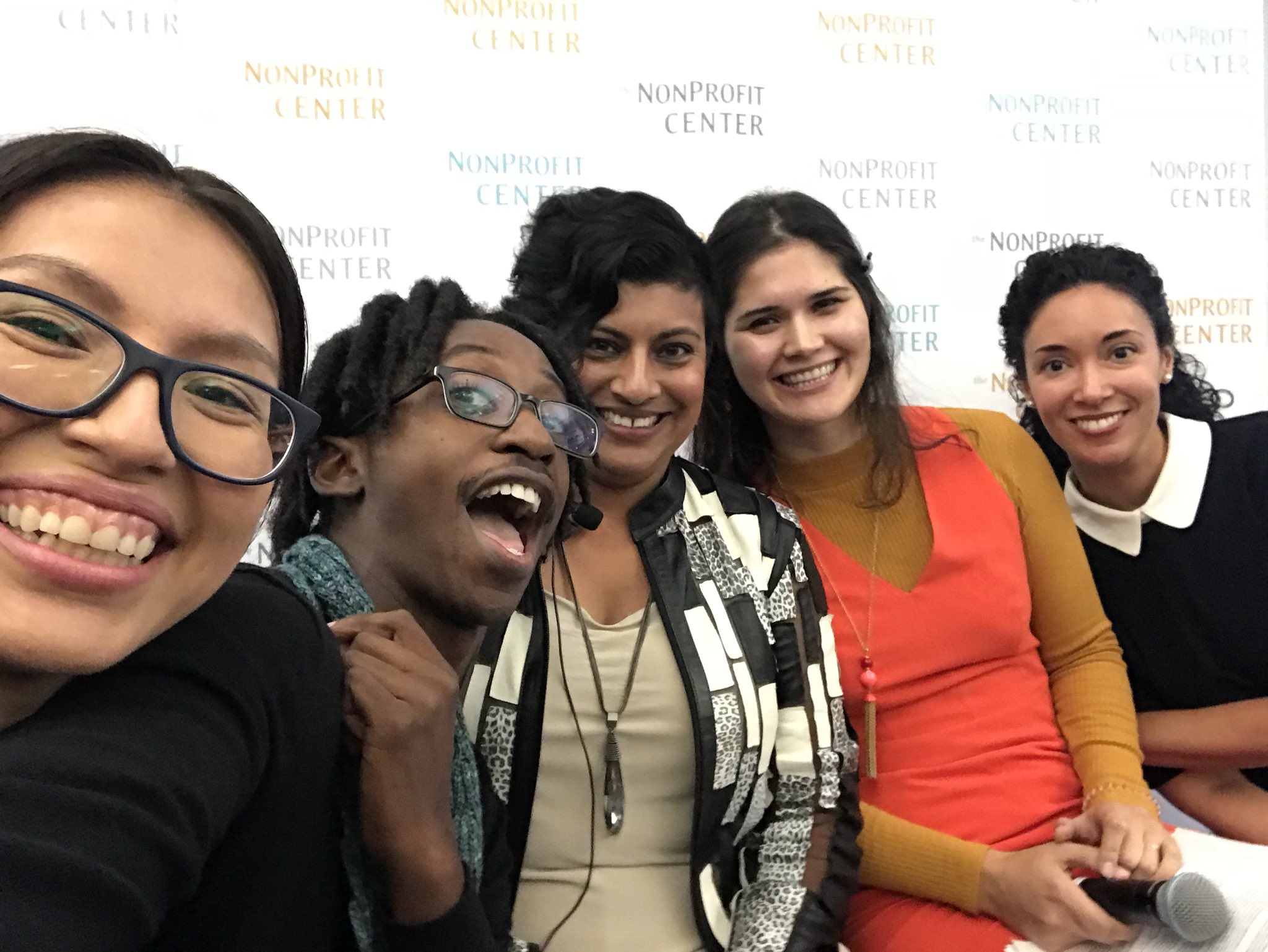Rents, loans, transportation, food, taxes, healthcare: the cost of living in America’s cities is skyrocketing. Millennials of color are feeling the pinch and in order to attract and retain talented staff, companies — especially in the nonprofit sector — need to develop strategies to make working in the sector a viable option.
Nonprofits in the City of Boston got a wake-up call on the issue at an event titled Valuing Our Workforce: How the Nonprofit Sector Can Support Millennials of Color in Boston. The event was part of the Fierce Urgency of Now, #FUNinBOS, a six-day festival designed to highlight the experiences of, challenges, and possibilities for millennials of color in Boston.
The event focused on a new report, Wage Equity Matters, published by TSNE, a nonprofit management support organization based in Boston. Compiled from survey data from more than 340 nonprofit organizations in Southern New England, the report points out that our sector does not always adequately support employees by paying living wages. 44% of the region’s nonprofit workers make less than $31,000, which could make them eligible for some public benefits in Massachusetts, Connecticut and Rhode Island. While many nonprofits have missions related to alleviating poverty and promoting well-being, many nonprofit employees are struggling to make ends meet with the low salaries and the high cost of living.
Panelists at the event talked more in-depth about their personal experiences at work, and their hopes for how the conversation and action on supporting millennials of color in the nonprofit sector can continue. They included:
- Jeannette Andre, Deputy Director for The Lenny Zakim Fund
- Lawrence Barriner II, Independent Consultant and Facilitator
- Manisha Bewtra, Alderman-At-Large for the City of Melrose and Senior Program Manager for the Massachusetts Housing Partnership
- Christina Haines, Volunteer Manager for Silver Lining Mentoring
- Miriam Ortiz, Co-founder and Chair of the Board of Directors for the Student Immigrant Movement
Nonprofits, with budget restrictions and the perennial challenge of raising enough money to serve their constituency, may not always be able to pay the highest or most competitive salaries. Here are seven ideas from the discussion that could help nonprofits, foundations and philanthropists in the social sector support millennials of color in making working in the nonprofit sector a viable and attractive option for them.
- Provide up and coming professionals with mentorship. Supervisors and leaders should take the time to build relationships and provide mentorship. Having supervisors and leaders of color is particularly meaningful for millennials of color.
- Be intentional about populating your boards, leadership teams and management teams with millennials of color. Oftentimes, there are only one or two people of color embedded in organizational leadership. Adopt diversity standards and goals and pin ED and CEO performance measures to these goals.
- Make wage equity a policy. Go beyond a living wage to a livable wage. TSNE has adopted a human resource policy that sets its lowest entry-level wage at $45,000. Well above the “Living Wage” law standards.
- Encourage self-care. Ensure people have adequate time off and encourage them to use it. Have organizational leaders model taking a true vacation, to set the standard that it is okay to unplug from work during paid time off. Also be mindful when creating paid time off policies to consider the needs of people from different backgrounds.
- Remove advanced degree requirements from your job descriptions. Companies that require advanced degrees for entry-level staff can exclude people of color who have a higher barrier of entry into higher education. Value and uplift their experience equally to education.
- Invest in different models of leadership. Nonprofits don’t need to be structured like corporate America, especially when they are doing social change work. Nonprofits have the obligation to be energetic and creative in how they work. Philanthropy should invest in helping the sector explore different ways that organizations can exist: co-directors, flatter organizational models, worker self-directed nonprofits, and different ways the board can function or be able to support millennials and their work.
- Meaningful professional development. When thinking about key projects and thought leadership that is coming up in your nonprofit, think about it as a professional development opportunity for millennials. This can be anything from strategic planning processes to writing and research. Ensure there are opportunities for existing staff, including and particularly staff of color to participate in those projects, not automatically resorting to bringing in consultants or contractors who may be in privileged position who come in and do that really strategic advanced work that could otherwise propel someone’s career and leadership skills.
Many companies and nonprofits have already started including some of these ideas into their organizations.
For more ideas on what your organization can do to support millennials of color view the recording of the evening’s conversation:
If you are having trouble viewing, watch here.
Also
- Read the transcript of the event.
- Download your copy of Wage Equity Matters.
About the authors
Owen Berson is a program associate for Human Resources Practice and co-author of Wage Equity Matters. Ning Jun Yuan is a digital communications specialist and co-producer of the Valuing Our Workforce event.
